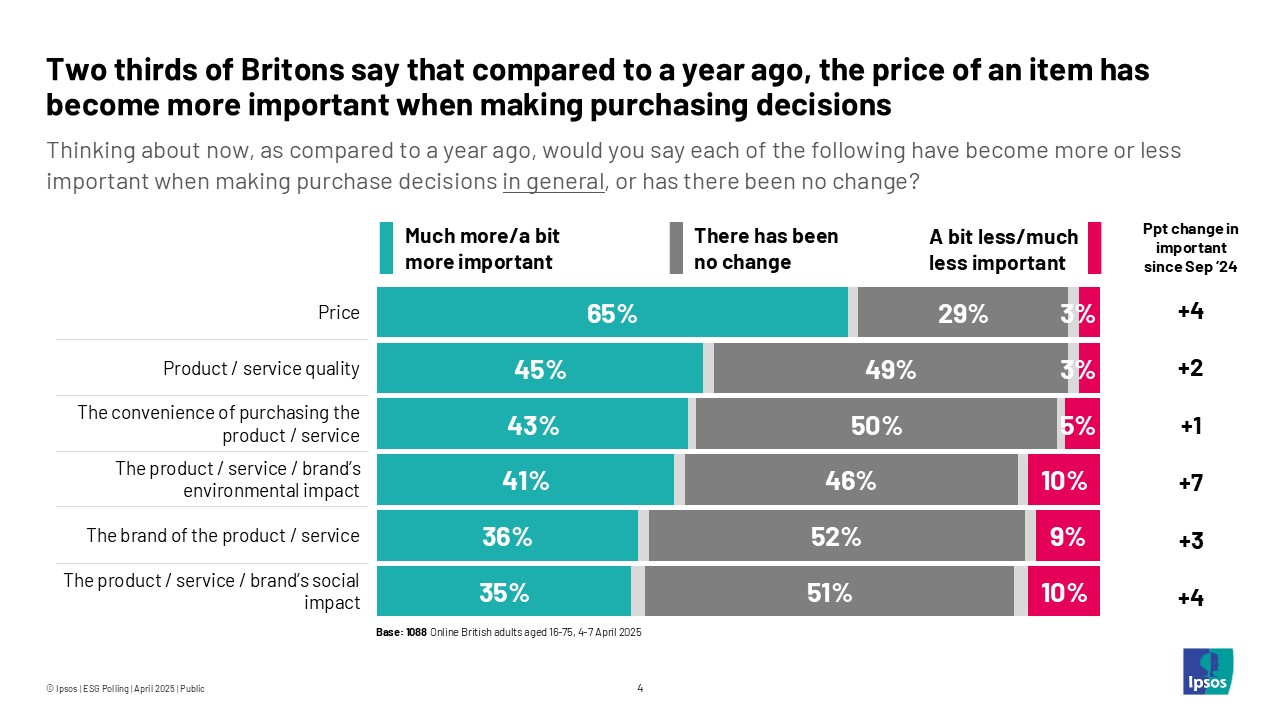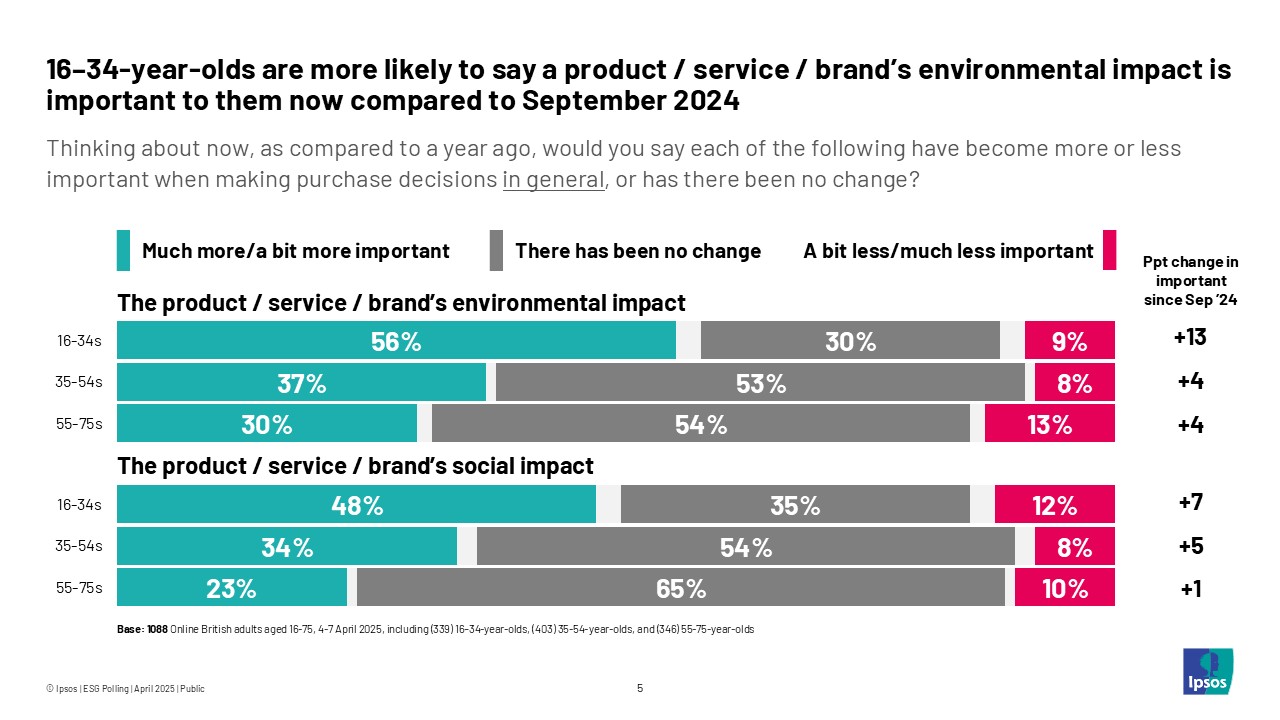Price trumps planet? Britons want sustainable products, but on a budget
Ipsos in the UK today released key findings from its latest polling, conducted in partnership with PA Mediapoint, on the extent to which Environmental, Social, and Governance (ESG) factors influence British purchasing decisions. The survey, conducted online among 1,088 British adults aged 16-75 between April 4-7, 2025, reveals a growing awareness of sustainability among consumers, although price sensitivity remains paramount.
- Price remains king: Price remains the most important factor for British consumers, with 93% rating it as very/somewhat important. This is followed by product/service quality (92%) and convenience (88%). Two thirds (66%) of Britons rate environmental impact as very/somewhat important, while 57% say that social impact is important.
- Price sensitivity intensifies: Compared to a year ago, the importance of price has grown, with two thirds (65%) saying it's much more/a bit more important. The environmental impact of a product/service/brand has also grown, with around four in ten (41%) saying that it is more important (+7 ppts from Sept 2024).

- Younger consumers drive ESG focus: 16–34-year-olds show a stronger focus on environmental impact when making purchasing decisions than older demographics, with 56% saying it has become much more/a bit more important compared to a year ago. This represents a substantial 13 ppt increase since September 2024 for this age group. Almost half (48%) also say that social impact has become more important, a 7 ppts increase.

- Sustainability considerations vary by product: Consumers are most likely to consider sustainability when purchasing groceries (58%), household products (55%), and toiletries/beauty products (55%). Consideration is lower for categories like travel/accommodation (47%), banking (35%), and broadband (33%).
- Cost of living concerns: Half (50%) of Britons express a desire to do more for the environment but say that they cannot afford to. Just over four in ten (44%) say that while they are trying to save money, they try to avoid lifestyle changes that harm the environment.
- Packaging and sourcing top ESG factors: Among those who consider sustainability important, the materials used for product packaging (53%), where product materials are sourced from (45%), and the brand’s labour practices (41%) are considered the most important specific factors.
Commenting on the findings, Rachel Brisley, Head of Energy and Environment at Ipsos, said:
These findings highlight the friction between economic realities and growing ESG awareness among British consumers. While sustainability is clearly gaining traction, particularly among younger people, price remains a dominant concern, particularly in the current economic climate. Businesses seeking to appeal to environmentally and socially conscious consumers must navigate this tension by offering sustainable options that are also affordable and accessible.
Technical note:
- Ipsos interviewed a representative sample of 1,088 adults aged 16-75 across Great Britain. Polling was conducted online between the 4th and 7th April 2025.
- Data are weighted to match the profile of the population. All polls are subject to a wide range of potential sources of error.



